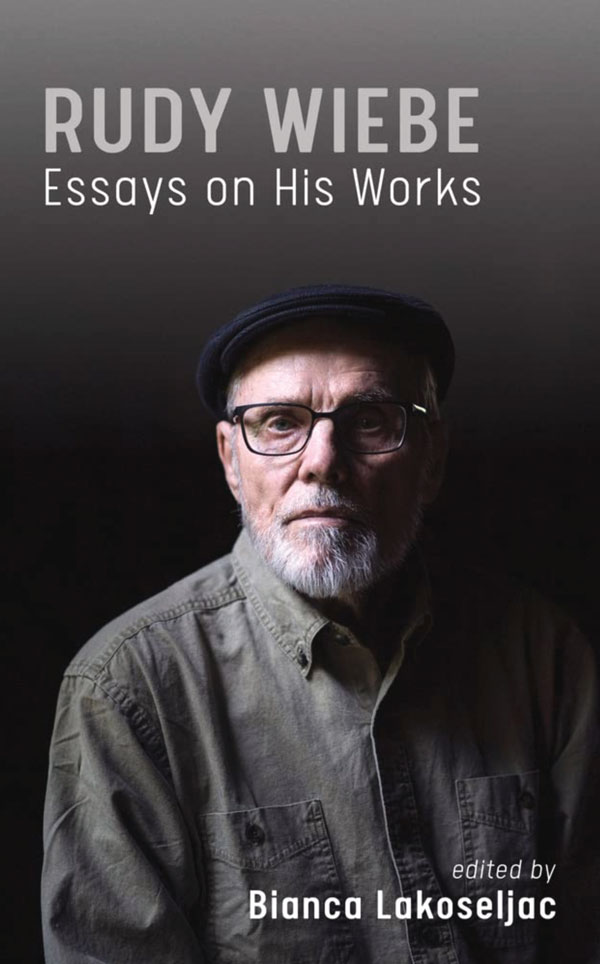Rudy Wiebe: Essays on His Works reads like a festschrift, a book honouring a respected person during his lifetime. Editor Bianca Lakoseljac raves about Wiebe’s influence on her and other writers, emphasizing her admiration for Wiebe as well as his prominent place in the history of Canadian literature. The collection is a worthy celebration of an artist who made a significant mark on the literary landscape of this country, particularly in his groundbreaking work as a Mennonite prairie writer.
The title of the collection misleads, however, as the book does not consist solely or even primarily of essays. Rather it also contains reprinted articles, old reviews and some new interviews. In this mélange, the contributor list is star-studded, with offerings by such CanLit icons as Margaret Atwood, Miriam Toews, George Melnyk, Olga Stein, Aritha van Herk and Katherine Govier. Some of these were once students of Wiebe’s at the University of Alberta, and the book demonstrates his influence as a teacher as well as an author. Readers might be surprised by the candid discussions of Wiebe’s approach to the classroom. His former students, while expressing their gratitude, feel comfortable calling him out on some of his more dated ideas. van Herk, for example, writes “I credit his benign chauvinism with strengthening my particular brand of fierce feminism.”
Because the book contains a wide range of source material from different decades, it has considerable repetition. This interferes with smooth front-to-back reading. An index would have been useful, directing readers to key passages on main themes and recurring ideas. For example, “appropriation, cultural” would have been a good entry, allowing readers to trace changing attitudes, from Wiebe’s original acclaim as a white Canadian writer giving voice to First Peoples, particularly in his classic The Temptations of Big Bear (1973), to society becoming much less comfortable with cross-cultural representation. As late as 2016 Wiebe called appropriation of voice “a mostly nonsensical way of looking at literature” and claimed “No writer worth her or his salt asks anyone’s permission to write on any subject.”
The book, inadvertently perhaps, works as a catalogue of changing attitudes in Canadian literature. In a reprint of a 1974 review of The Temptations of Big Bear, Myrna Kostash includes footnotes updating her language and correcting some of her original misconceptions. A list of original publication dates in the table of contents would have been another useful tool.
The collection has surprising breadth, with the most playful inclusion coming from Atwood, a comic about the time she taught Wiebe to dance. As a special treat, alongside a consideration of why Wiebe shifted to writing poetry in his 80s, the book includes a small collection of Wiebe’s new poems.
The most heartwarming piece here comes from beloved Mennonite writer Toews. Her personal essay recalls the first time she presented onstage with Wiebe. An audience member attacked Toews for her unflattering representation of Mennonite culture, and Wiebe rose to Toews’s defence. This powerfully told story makes clear Wiebe’s tremendous inspirational power in a culture of shame and silence.
Readers of Rudy Wiebe: Essays on His Works might be somewhat disappointed to discover how much of this book’s material is not new and/or is not essays, but the diversity of reflections collected in this volume will be useful to scholars and fans. Hopefully the collection will also attract new readers to Wiebe’s impressive multi-genre canon.
Angie Abdou is a professor of creative writing at Athabasca University and the author of seven books.
_______________________________________


